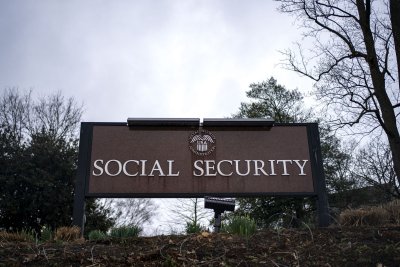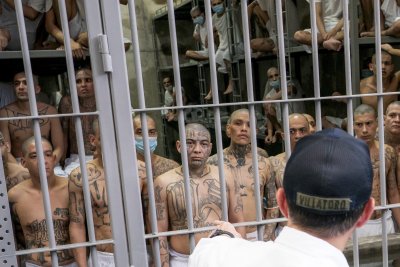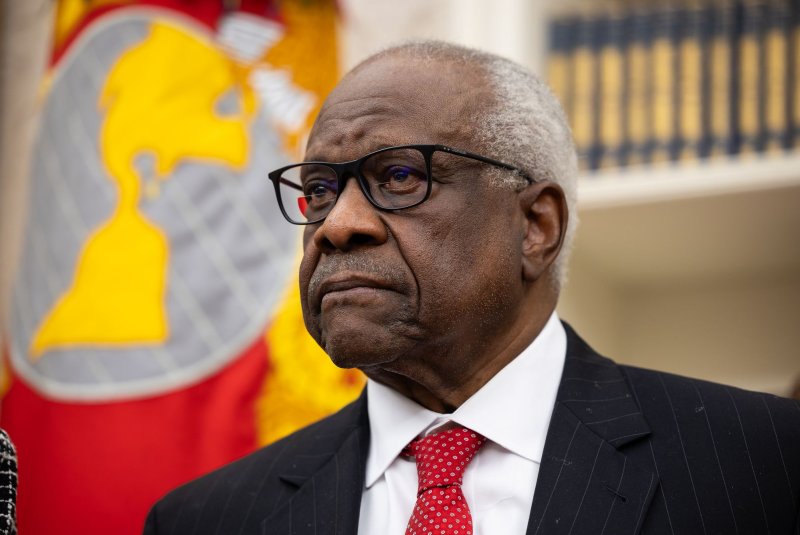Supreme Court allows DOGE staffers to access Social Security data

June 7 (UPI) — The U.S. Supreme Court is allowing members of the Trump administration’s Department of Government Efficiency to access personal Social Security Administration data.
On Friday, the Court’s six conservatives granted an emergency application filed by the Trump administration to lift an injunction issued by a federal judge in Maryland. Opposing the injunction were the three liberal justices: Sonia Sotomayor, Elena Kagan and Ketanji Brown Jackson.
There are 69 million retirees, disabled workers, dependents and survivors who receive Social Security benefits, representing 28.75% of the U.S. population.
In a separate two-page order issued Friday, the Supreme Court allowed the Trump administration for now to shield DOGE from freedom of information requests seeking thousands of pages of material. This vote also was 6-3 with no written dissenting opinions.
In the two-page unsigned order on access, the court said: “We conclude that, under the present circumstances, SSA may proceed to afford members of the SSA DOGE Team access to the agency records in question in order for those members to do their work.”
The conservatives are Chief Justice John Roberts, and Associate Justices Clarence Thomas, Samuel Alito, Neil Gorsuch, Brett Kavanaugh and Amy Coney Barrett. Three of them were nominated by President Donald Trump during his first term.
U.S. District Judge Ellen Hollander, appointed by President Barack Obama, had ruled that DOGE staffers had no need to access the specific data. The 4th U.S. Circuit Court of Appeals, based in Virginia, declined to block Hollander’s decision.
The lawsuit was filed by progressive group Democracy Forward on behalf of two unions, the American Federation of State, County and Municipal Employees, and the American Federation of Teachers, as well as the Alliance for Retired Americans.
They alleged broader access to personal information would violate a federal law, the Privacy Act and the Administrative Procedure Act.
“This is a sad day for our democracy and a scary day for millions of people,” the groups said in a statement. “This ruling will enable President Trump and DOGE’s affiliates to steal Americans’ private and personal data. Elon Musk may have left Washington, D.C., but his impact continues to harm millions of people. We will continue to use every legal tool at our disposal to keep unelected bureaucrats from misusing the public’s most sensitive data as this case moves forward.”
Social Security Works posted on X: “No one in history — no commissioner, no president, no one — has ever had the access that these DOGE minions have.”
White House spokesperson Liz Huston after the ruling told NBC News that “the Supreme Court allowing the Trump Administration to carry out commonsense efforts to eliminate waste, fraud, and abuse and modernize government information systems is a huge victory for the rule of law.”
Brown Jackson wrote a nine-page dissenting opinion that the “Government fails to substantiate its stay request by showing that it or the public will suffer irreparable harm absent this Court’s intervention. In essence, the ‘urgency’ underlying the government’s stay application is the mere fact that it cannot be bothered to wait for the litigation process to play out before proceeding as it wishes.”
She concluded her dissent by writing: “The Court opts instead to relieve the Government of the standard obligations, jettisoning careful judicial decisionmaking and creates grave privacy risks for millions of Americans in the process.”
Kathleen Romig, who worked as a senior adviser at the agency during the Biden administration, told CNN that Americans should be concerned about how DOGE has handled highly sensitive data so far. She said the personal data runs “from cradle to grave.”
“While the appeals court considers whether DOGE is violating the law, its operatives will have ‘God-level’ access to Social Security numbers, earnings records, bank routing numbers, mental and reproductive health records and much more,” Romig, who now is director of Social Security and disability policy at the left-leaning Center on Budget and Policy Priorities.
When Trump became president again on Jan. 20, he signed an executive order establishing DOGE with the goal of “modernizing Federal technology and software to maximize governmental efficiency and productivity.”
Nearly a dozen DOGE members have been installed at the agency, according to court filings. In all, there are about 90 DOGE workers.
DOGE, which was run by billionaire Elon Musk until he left the White House one week ago, wants to modernize systems and detect waste and fraud at the agency.
“These teams have a business need to access the data at their assigned agency and subject the government’s records to much-needed scrutiny,” Solicitor General D. John Sauer wrote in the court motion.
The data includes Social Security numbers, date and place of birth, gender, addresses, marital and parental status, parents’ names, lifetime earnings, bank account information, immigration and work authorization status, health conditions for disability benefits and use of Medicare.
SSA also has data-sharing agreements with the IRS and the Department of Health and Human Services.
The plaintiffs wrote: “The agency is obligated by the Privacy Act and its own regulations, practices, and procedures to keep that information secure — and not to share it beyond the circle of those who truly need it.”
Social Security Administration Commissioner Frank Bisignano, who was sworn in to the post on May 7, said in a statement: that”The Supreme Court’s ruling is a major victory for American taxpayers. The Social Security Administration will continue driving forward modernization efforts, streamlining government systems, and ensuring improved service and outcomes for our beneficiaries.”
On May 23, Roberts temporarily put lower court decisions on hold while the Supreme Court considered what next steps to take.
Musk called Social Security “the biggest Ponzi scheme of all time” during an interview with Joe Rogan on Feb. 28.
The Social Security system, which started in 1935, transfers current workers’ payroll tax payments to people who are already retired.
The payroll tax is a mandatory tax paid by employees and employers. The total current tax rate is 12.4%. There is a separate 2.9% tax for Medicare.



